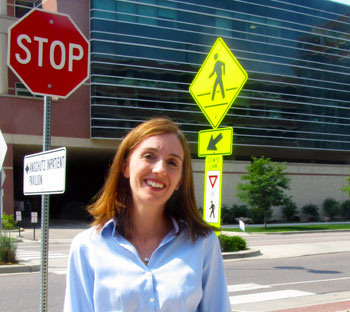Final Thoughts
Planning Now for Driving Retirement
(November 2013) There is no doubt that Americans love their cars.
Since the middle of the last century this coun-try, with its coast-to-coast highways and sub-urban developments, has developed a world-famous car culture. For now, most Americans rely heavily on their cars to get around each day, resulting in 2.9 trillion total miles driven in 2012 in the United States.
 Now imagine that a well-meaning family member or health care provider said that you had to stop driving because he or she suspected you were no longer a safe driver — not next year, not next month, but you had to stop today.
Now imagine that a well-meaning family member or health care provider said that you had to stop driving because he or she suspected you were no longer a safe driver — not next year, not next month, but you had to stop today.
How would you get to work, to the grocery store, to family gatherings, or to the community or religious activities that are important to you? If you’re lucky, you’ve got family members who can drive you everywhere, though you’d probably worry about being a burden to them. There might be public transportation available, but do you know how to use it, and is it convenient? And think about the emotional impact of losing the ability to get around independently.
This scenario might seem unlikely if you’re a young or middle-aged adult in good health. But almost all older adults will face this decision at some point and, in general, we don’t do a very good job as health care providers, family members or a community in helping them prepare for it.
Contrary to popular stereotypes, most older drivers are actually safe to stay on the roads. Many limit their driving to small geographic areas and avoid hazardous conditions like bad weather, and they are less likely to engage in risky driving behaviors like speeding, texting while driving or driving while intoxicated.
The risk of motor vehicle crashes does rise with age, but the risk of injury is mostly to the older driver, not to the surrounding community. Put another way, a person is more likely to be hit by a young driver than an older one, so we need to stop labeling all older drivers as dangerous.
However, for most older drivers, the time will inevitably come when something — a medical condition, declining cognitive abilities,
So what should we do?
Well, to start, we should prepare for “driving retirement” the way we prepare for other inevitable changes, like retirement from work, future health problems
We should talk with our patients about the need to transition from driving to other forms of transportation long before the time comes in order to prepare. This preparation should consider transportation needs such as distance and frequency of trips for work, medical appointments, shopping and leisure, and options such as friends or family members, ride services, and public transportation. It should also address the emotional impact of driving retirement and make plans to ensure the older adult can stay involved in his or her community.
And how do we do this?
Ideally, these conversations should happen in both our homes and our clinical practices. Health care providers have a well-recognized, albeit sometimes uncomfortable, role in assessing and counseling older drivers, but too often these conversations don’t happen until a concern, like a car crash or worsening health, means it’s time to stop driving right away.
Because driving retirement is an emotional issue, it can become a “hot potato” topic that providers and family members kick back and forth, with no one wanting to tackle it.
But in a recent study with health care providers and older drivers in the Denver area, we found that both groups supported the concept of advanced preparation for driving
In the
Dr. Betz is a board-certified emergency physician who conducts research in injury epidemiology and prevention, with a specific interest in older drivers.